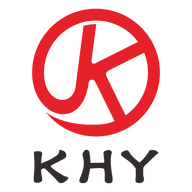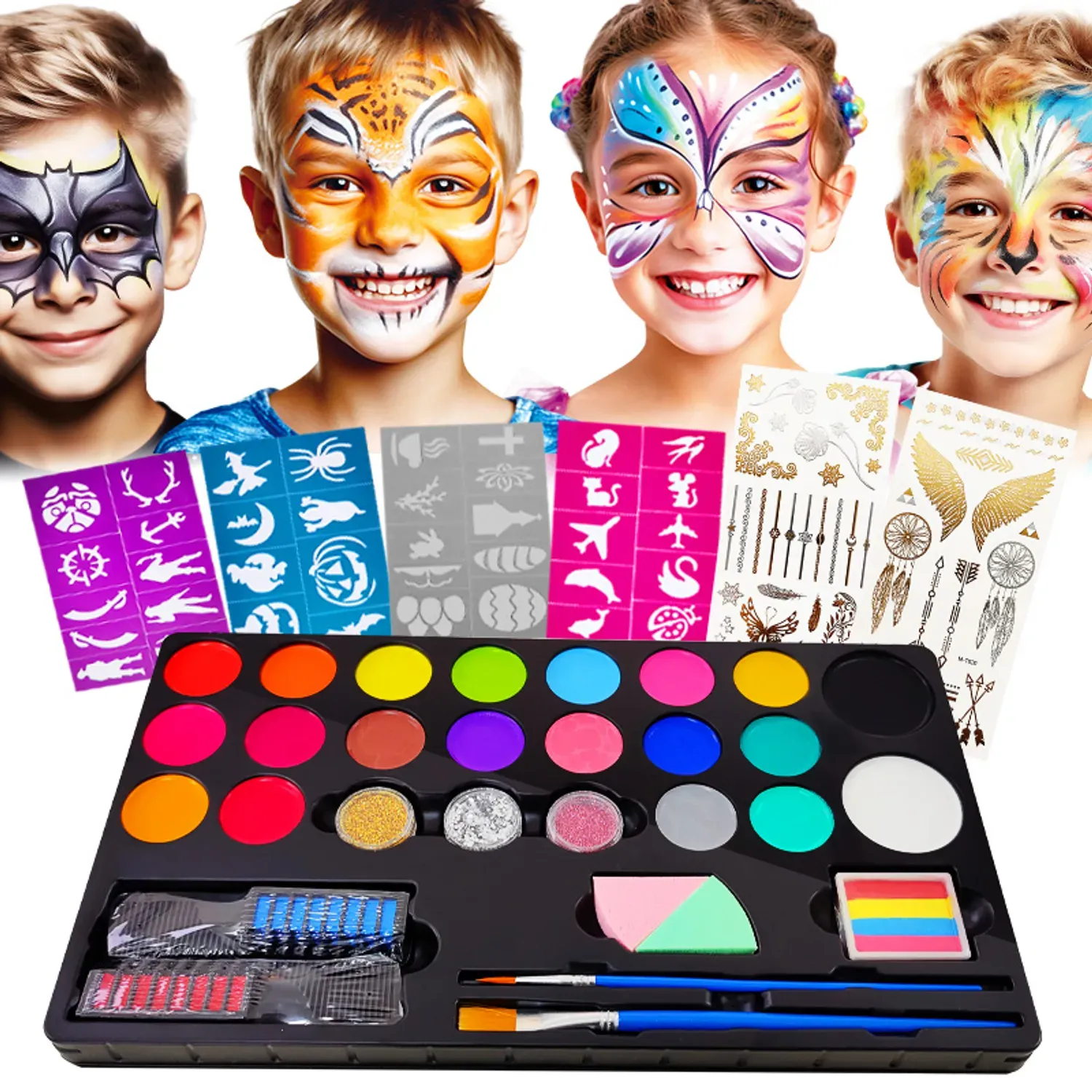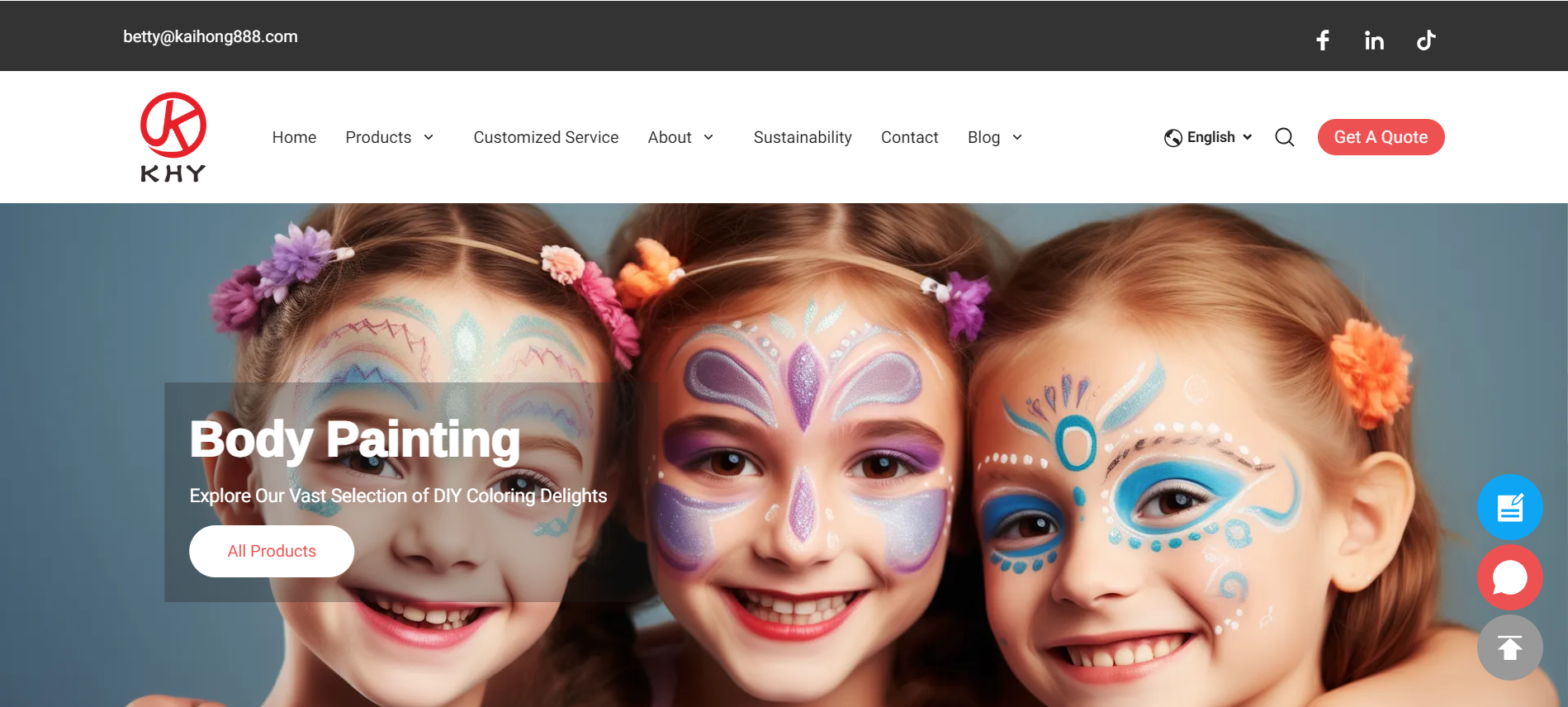betty@kaihong888.com

Get A Quote
Can People Be Allergic to Face Paint?
Face painting is a popular activity, especially during festivals, birthday parties, and Halloween. It's a fun way to transform into different characters and express creativity. However, a concern that often arises is whether people can be allergic to face paint. This question is crucial, particularly for parents who want to ensure the safety of their children. In this article, we will explore the potential for allergic reactions to face paint and provide some DIY face painting tips to minimize risks.
Understanding Allergic Reactions to Face Paint
What Causes Allergies to Face Paint?
Face paint allergies are typically caused by certain ingredients found in the paint. Common allergens include preservatives, fragrances, and certain pigments. When these substances come into contact with sensitive skin, they can trigger an immune response, leading to symptoms such as redness, itching, and swelling.
Symptoms of Face Paint Allergies
Recognizing the symptoms of a face paint allergy is essential for timely intervention. Symptoms can range from mild to severe and typically appear shortly after application. Common signs include redness and irritation, itching or burning sensation, swelling or hives, and rash or blisters. In severe cases, a person might experience difficulty breathing, which requires immediate medical attention.
Risk Factors for Face Paint Allergies
Certain factors can increase the likelihood of an allergic reaction to face paint. These include having sensitive skin or a history of skin allergies, using face paints with low-quality or unknown ingredients, and applying face paint to broken or irritated skin.
Safe DIY Face Painting Tips
Creating your own face paint can be a safer alternative, especially if you are aware of the specific allergens that cause reactions. Here are some DIY face painting tips to ensure a fun and safe experience:
Choosing Safe Ingredients
When making your own face paint, opt for ingredients that are gentle on the skin. Common household items like cornstarch, flour, and water can serve as a base. For color, consider using food coloring or natural pigments like turmeric or cocoa powder.
DIY Face Paint Recipe
Here is a simple and safe DIY face paint recipe you can try at home:
- Ingredients: 1 teaspoon cornstarch, 1/2 teaspoon water, 1/2 teaspoon cold cream or face lotion, and a few drops of food coloring.
- Instructions: Mix the cornstarch and cold cream until smooth. Gradually add water to achieve the desired consistency. Add food coloring a drop at a time until you get the color you want. Apply the face paint with a clean brush or sponge.
Patch Testing
Before applying DIY face paint to the entire face, perform a patch test. Apply a small amount of the paint to the inside of the wrist or behind the ear. Wait 24 hours to see if any irritation occurs. If there is no reaction, the paint should be safe to use.
Commercial Face Paint: What to Look For
If DIY face painting is not an option, choosing the right commercial face paint is crucial. Here are some tips for selecting safe products:
Reading Labels
Carefully read the labels of commercial face paints. Look for products that are labeled as non-toxic, hypoallergenic, and FDA-approved. Avoid paints with fragrances and preservatives that can be potential allergens.
Quality Brands
Invest in face paints from reputable brands known for their quality and safety standards. Brands that specialize in children's face paints are often more rigorous in their ingredient selection. You can also consider the products from KHY DIY company, which is renowned for its high-quality and safe face paints.
Avoiding Metallic and Neon Paints
Metallic and neon face paints can be more likely to contain allergens and irritants. If possible, avoid these types of paints, especially for children with sensitive skin.
Handling Allergic Reactions
Despite precautions, allergic reactions can still occur. Knowing how to handle them can prevent complications.
Immediate Actions
If you notice signs of an allergic reaction, immediately remove the face paint with a gentle cleanser and cool water. Avoid scrubbing, as this can aggravate the skin further.
Over-the-Counter Remedies
For mild reactions, over-the-counter hydrocortisone cream can help reduce itching and inflammation. Antihistamines can also be effective in managing symptoms.
Seeking Medical Attention
In cases of severe reactions, such as difficulty breathing or extensive swelling, seek medical attention immediately. It’s always better to be safe and ensure professional intervention when necessary.
Long-Term Prevention Strategies
Avoiding Known Allergens
If you or your child has a known allergy, identify and avoid specific allergens in face paints. This might mean creating your own DIY face paint or sticking to trusted brands with transparent ingredient lists.
Educating Children
Teach children not to share face paints or brushes with others, as this can spread allergens and increase the risk of reactions. Encourage them to speak up if they feel any discomfort or itching.
Regularly Updating Products
Face paints, like all cosmetic products, have a shelf life. Using expired products can increase the risk of reactions. Regularly update your face painting kit and dispose of any old or questionable items.
Conclusion
Face painting is a delightful activity that brings joy to many occasions. However, being aware of the potential for allergies and taking appropriate precautions can ensure it remains a safe and enjoyable experience. Whether you choose to use DIY face painting techniques or select high-quality commercial products, understanding the risks and symptoms of face paint allergies is crucial. By following these guidelines, you can minimize the risk of allergic reactions and enjoy the creative fun of face painting worry-free.
For those who prefer commercial products, it is crucial to select high-quality, safe, and non-toxic face paints. KHY offers an extensive range of professional DIY paint wholesale supplies that are ideal for face painting. Committed to quality and safety, KHY provides hypoallergenic and FDA-approved face paints, guaranteeing a fun and carefree painting experience. Whether you are organizing a children's party, getting ready for a festival, or simply seeking safe and reliable face paints, KHY has got you covered. Transform your events with KHY's exceptional face paints and enjoy the peace of mind that comes with using products that prioritize safety and quality.

